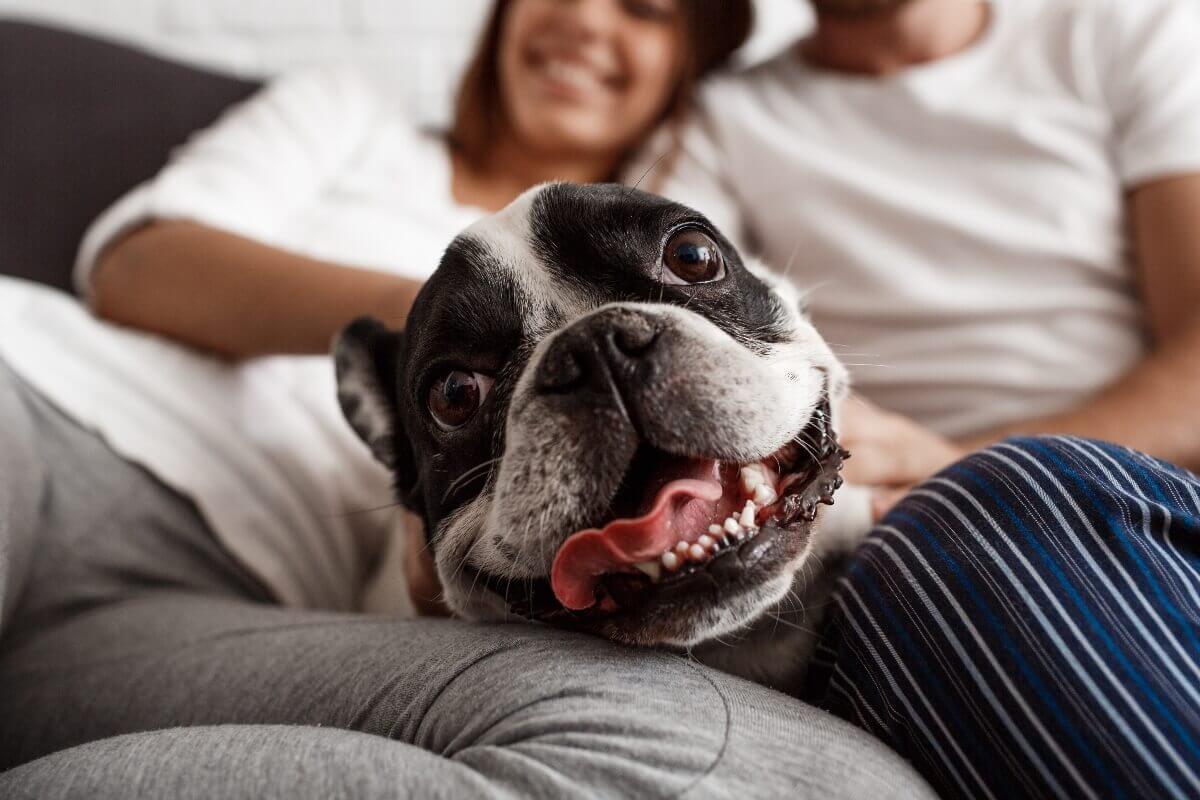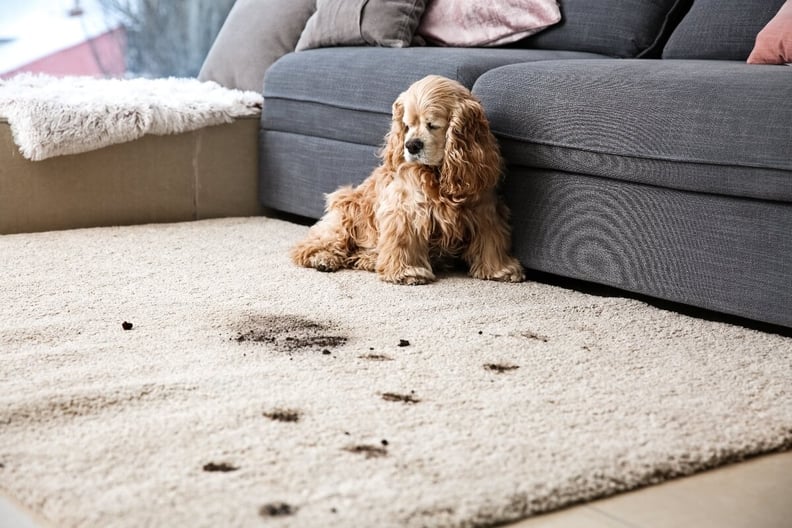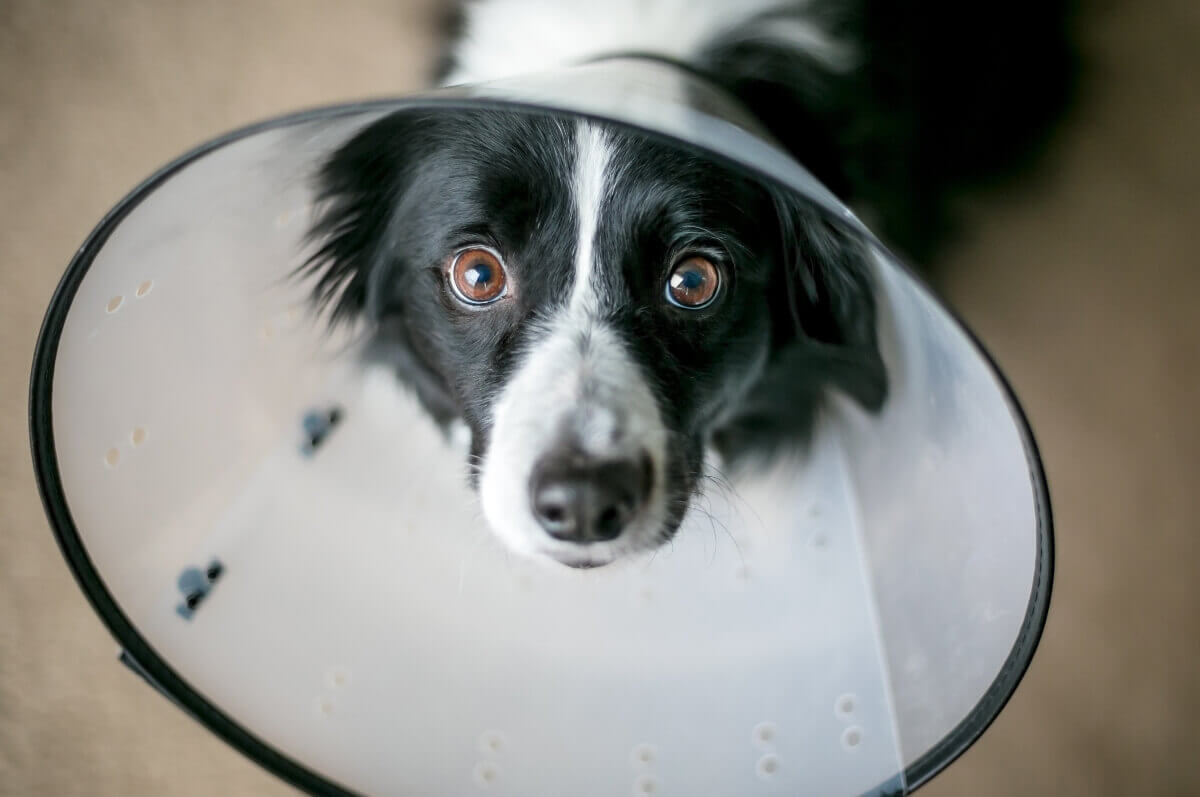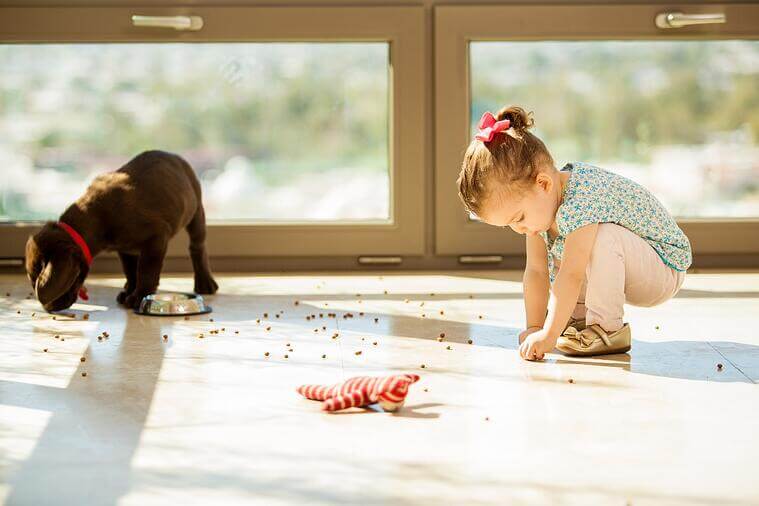
Dogs love us unconditionally, so it seems fitting that we want to welcome these lovable furballs into our homes and our families. But dog ownership is not all sloppy kisses and tail wags. Before making a big commitment, and yes, getting a dog is a BIG commitment, you need to ask yourself the bit questions like - Should I get a dog? or Why you should get a dog? Things to know before getting a dog?
Wanting a pet and being ready to provide the love, attention, routine, and environment that a dog requires are two different things.
These things are even more important if you are getting a puppy as opposed to an older dog. The routine, training classes, and attention you provide help them develop into well-behaved and healthy adults.
It’s easy to see the best parts of having a pet, but will you still cherish them the same when they are on their worst behaviour, when they’ve chewed up your leather couch or peed in your shoes?
The fact is, welcoming a dog into your family means that your life will change, so before you decide to get a new pup on a whim, consider whether you are willing to make some sacrifices to ensure that your dog gets the care and attention that they need to thrive.
Let’s look at some of the things that you need to consider before you decide to get a dog.
6 Things to Consider Before Getting a Dog
Getting a dog is exciting. You probably can’t wait to bring home a new furry friend, but don’t let the cuteness of a potential new pup sway you. Getting a dog is a huge responsibility, and a puppy is even more so. It means that you’ll be responsible for the safety and well-being of these cute animals, so you better make sure you can offer them a good life before you commit.
Are you wondering, which dog should I get?
I’m sure everyone who gets a dog has the best intentions, but sometimes that’s not enough. Before you decide you want a dog, you need to determine if you should have a dog. There are 6 things you need to consider when asking yourself -should I get a dog?
-
- Breed
- Time
- Environment
- Cleanliness
- Money
- Patience
1. Breed Matters

Your dog’s breed will give you an indication of the type of activity and routine your dog will need, as well as any potential health or behavioural issues that are common or predisposed in the breed. Some dog breeds are more popular than others, but that doesn’t mean they are the right fit for you.
If you don’t take the time to research your breed, you may end up with a dog that does not suit your lifestyle. A high-energy breed like a husky might not be a good fit for you if you don’t have the time to provide the hours of exercise that dogs will need every day.
Or if you are an avid hiker or outdoor enthusiast, a brachycephalic breed (short-nosed) like a bulldog might not be the most compatible with your favourite activities.
Some breeds are prone to certain health problems or issues that may require veterinary care, medications, or changes to lifestyle or diet. This might lead to certain lifestyle restrictions. It’s always better to be prepared for complications by doing the research first.
Check out Dogtime.com for a huge collection of dog breed profiles that can help you get the skinny on your potential new fur baby.
While breed can tell you a lot, it can't tell you everything, and there are many misconceptions and misinformation about dog breeds that lead to people getting a pet that doesn't suit them as human beings.
People with dog allergies, for example, often seek out hypoallergenic dogs, but there is never any guarantee that pets will truly be non-shedding or hypoallergenic. Getting a pet or dog home and finding out you are severely allergic to it means that you likely can't keep that pet.
Keep this in mind when looking for specific genetic traits, behaviours, or appearances in a dog. No matter how hard you try, you may not end up getting exactly what you planned for, so you need to be flexible. If you can't, then maybe a dog isn't the right pet.
2. One-On-One Time
It’s a no-brainer that you’ll need to spend time with your dog, but do you know how much? Sure, some dogs do fine when left alone while you are at work, but you still need to dedicate a good chunk of your time before and after work to caring for, training, and nurturing your dog.
If you have an active social life, love to go on frequent vacations, or have a hectic work schedule, then you may want to consider a less needy pet, like a fish.
Consider your other responsibilities. Young kids, your career, and any other commitments can limit the amount of time and effort you can dedicate toward a pet.
Puppies need even more attention than adults, and if you aren't providing the dog training, structure, and boundaries, then your puppy will likely form some destructive and dangerous habits, like chewing, digging, and even self-harm tendencies, like over-grooming, barking excessively, and destructive chewing.
3. Suitable Environment
Consider your current living situation. Is your home the ideal environment for a dog? Getting a dog doesn’t mean you have to have a large house with a huge backyard, but they do need room to play and explore.
If you live in an apartment or don’t have a yard, does your neighbourhood have suitable parks and walking trails? If not, do you have reliable transportation to take your dog to an area with more suitable amenities?
Living in a crowded urban setting isn’t ideal for every dog, so make sure the home you can offer matches a dog well. Older pets or less active dogs may adjust to a city setting or apartment life better than a high-energy breed or a young puppy.
You also need to consider whether you are allowed to have a dog in your home. Do you rent? Find out if you can have a dog in your rental property before you get one. This is not a situation where it's better to ask forgiveness than permission.
4. Cleanliness is next to Dogliness

Does your house look like a spread from the Martha Stewart collection? Like kids, dogs may be messy, and sometimes they break things. If you can’t handle an accident on the carpet or chew marks on your table legs, you need to reassess whether you are ready for a dog.
Dog-proofing your home can help. That might mean rearranging furniture, getting rid of floral arrangements and planters, or setting up a no-dog zone for valuable and prized possessions.
On the flip side, if you are a bit of a slob, then you need to consider how dangerous a messy lifestyle can be for a curious puppy. Your new dog’s decisions are usually guided by his nose and stomach, so it’s important to keep your house tidy to keep him safe. How much is a dog to buy? Can you truly afford a dog and everything that goes along with pet ownership, such as food, toys, and vet visits?
Over-filled garbage cans, loose food, and general clutter can all be things your nosey pooch will want to explore and potentially snack on. A tidy house is a safe house.
5. How Much Does it Cost to Own a Dog?

It’s no secret that pets can be expensive, but before you decide if you are ready for a dog, you need to make sure that you can really afford one. Getting dog toys means a lot of one-off purchases, so you'll need to save up for the right gear and accessories,
Just how much does a dog cost?
Does $2600 a year sound reasonable? This is the average yearly cost of owning a dog in Canada. When we break that down, it’s about $215 per month. That’s not an insignificant amount of money but might seem doable.
Maybe you won’t need a trainer, a dog walker, or a groomer, but part of being a responsible pet owner is being prepared for unexpected situations and expenses.
If you are lucky, your pet won’t experience any health issues, but if they do, you need the funds to pay for the veterinary services.
Even dogs who don't experience any severe medical issues will still need regular checkups and vaccines, which can add up quickly.
We all know that veterinary care can be expensive. You might be wondering how often should I take my dog to the vet? How do I budget for regular veterinary costs?
Most healthy dogs will only need to visit the vet about once per year. This visit will cover all basic health assessments and vaccines and could run you upwards of $400, depending on your dog's specific needs.
A few hundred dollars once a year isn't too bad, but what if they need more care? Other services your pet may need from the vet include dental cleaning, blood work, x-rays, and other costly services.
According to a survey conducted by Global News, annual expenses for dogs can vary greatly depending on the needs and health of the pet.
Some dog owners spend less than the average yearly cost of raising a dog, but others aren’t as lucky.
Vet bills and medications can quickly raise the average cost of dog ownership from $2600 to well over $5000! These costs can soar even higher for people who own large and giant breeds.
These estimates don’t even include the potential cost of renting with a pet.
We’re not saying that you need to be a millionaire to own a dog, but it is wise to put aside some money for an emergency fund before you get your new pet.
Pet insurance is another way to mitigate the costs of bills and unexpected incidents. Consider your options before you get a dog.
These smart financial planning options are better to have and not need than need and not have, so make sure you are able to plan ahead.
6. Puppies Test Your Patience

By far, the most important point to consider. Whether your dog is just a puppy, or a full-grown adult, bringing a breed of dog owner into your home is stressful. It will take time and patience to help your dog get comfortable with his new life.
Be prepared to do a lot of training and clean up a lot of messes. If you have a short temper or get easily frustrated, then you need to think twice before bringing in a dog who may have some behavioural issues to work out.
Consider the patience of others living in your house as well. Kids, spouses, mother-in-law, roommates, and even others are going to be affected by a dog. Make sure that everyone in the house training is comfortable with a new pet and prepared to deal with the frustrations that can come with dog owners.
Kids and other pets are usually the toughest to work with as they can’t always understand the routines, rules, and behaviors of a new dog owner. Make sure you are prepared to work with everyone to create a safe and suitable home for the whole family.
Make the Right Choice for You and the Dog
If you can detach yourself from material possessions, plan financially, commit your time and efforts, and keep your mind cool in stressful situations, then great news; you are probably ready for a dog! Check out our New Puppy Checklist to find out the next steps for preparing for your new family member.
Shelters and rescues are great places to shop for a pet if you aren't prepared to test the waters with a puppy. Many adult dogs or senior pets need a good home too, and some of them already have years of socializing and training experience.
If you do want to go through a breeder, that’s ok too. Just make sure you are picking a responsible breeder. There are many puppy mills and inexperienced breeders out there that are contributing to the population of dogs need. Sadly, the unwanted pets often end up in shelters and rescues.
Don’t be afraid to ask questions, ask for references, and even do some googling to find out as much as you can about the breeder and the breed you are interested in owning. A good breeder, rescue, or shelter will have no issue being open and honest with you. They will help you find the dog that is the best fit for you!
.png?width=200&height=66&name=logo%20(1).png)





.jpg)
